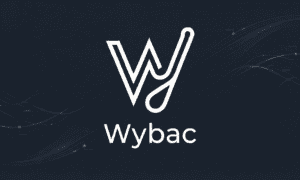Don’t you think that hiring an AI developer in 2025 is more complex than ever? Wondering why?
Well, the way AI is overtaking things and automating tasks, the demand for AI developers has grown to the next level.
To fulfill that changing user’s demand, it is important that you hire AI developers. You’re not just looking for coders—you’re searching for technologists who understand algorithms and business logic, who can scale machine learning models and sync with your product team. And yet, the process is messy.
Here’s what most businesses face:
- Resumes packed with buzzwords but short on practical AI experience
- Developers who can train a model but can’t integrate it into your app
- Costly hires who build features users never touch
- And the worst? A product that’s technically impressive—but commercially useless
Whether you’re scaling an AI MVP, launching a smart product, or automating your operations, the real challenge isn’t AI development—it’s hiring the right AI developers.
In this complete guide, we break down the biggest hiring mistakes, reveal the traits your AI team must have, and show you how to hire AI developers who can turn your vision into a scalable, intelligent solution.
1. Understand Your Business Bottlenecks
Most businesses fail at adopting AI technology even before they start. The lack of clarity over the business challenges always leads to confusion. So never hire AI developers to “explore possibilities.”
Instead, ask yourself these questions before hiring the AI engineers:
- Do you need AI to automate workflows?
- Are you personalizing user experiences?
- Are you forecasting trends based on large datasets?
Clarity here will help you hire AI developers with the right specialization, whether it’s natural language processing, computer vision, or generative AI.
2. Look For Product-Oriented Coders
Don’t hire AI professionals who are just focusing on brilliantly coding an app. Keep in mind that the code that doesn’t translate into business value is useless.
Great AI developers apply brilliant logics with technical expertise – what makes them product makers.
They understand real-world challenges, evolving user behavior, and how to measure impact. They combine their expertise and product-oriented thinking to help you drive logic. When you hire app developers or AI engineers, prioritize those who can talk business outcomes, not just model accuracy.
3. Analyze Technical Depth and Deployment Experience
You’re not just hiring someone to train a model—you’re hiring someone to:
- Integrate the model into your app
- Handle real-time inference
- Monitor and retrain the system post-launch
Too often, companies hire academic-style developers who never touch production environments. You need someone who understands MLOps, APIs, and cloud deployment just as well as they understand data wrangling.
Pro tip: When you hire app developers alongside AI talent, make sure both can work as a single unit.
4. Test Real Skills – Don’t Just Get Impressed With Certificates
AI resumes often look impressive but don’t reveal actual competence. Avoid relying on GitHub profiles or fancy certifications alone.
Run real-world coding tests. Pose business scenarios. Ask candidates how they would reduce model drift, optimize training time, or improve prediction latency in a live app.
If you’re working with a hiring partner or an AI development company, request sample case studies with performance metrics, not just demos.
5. Consider Global Presence and Availability
Offshore or hybrid teams are a smart choice for cost-effective delivery, especially when you hire AI developers in India or hire app developers from established hubs. But geography isn’t everything—communication is.
Look for developers fluent in agile collaboration, responsive to feedback, and available across time zones. The best teams don’t just write code; they communicate, iterate, and launch fast.
6. Don’t Pass The Red Flags
Don’t ignore these warning signs. Even if they are coming at the budget-friendly price, dont hire AI developers with warning signs. It can be:
- Over-promising AI capabilities
- Lack of understanding of your business domain
- Messy workflows between app and AI devs
- No plan for post-launch support or retraining
These signs almost always lead to delays, misaligned products, and ultimately—failure to launch.
Conclusion
Hopefully, with this blog guide you got to know that AI isn’t a plug-and-play feature. It’s a complex system that requires strategic design, technical excellence, and ongoing optimization.
If you’re planning to build AI-powered applications in 2025, start by hiring smart. Whether you choose to hire AI developers in-house, outsource to an AI development company, or partner with a hybrid team—invest in talent that moves beyond the algorithm and delivers real business value.

































